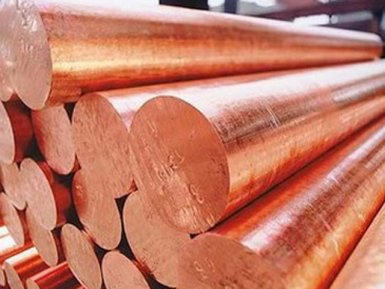Application of brass in mechanical engineering

Are you interested in using brass in mechanical engineering from the supplier company AvecGlob? Here you will find the necessary information on this topic.
Branches of mechanical engineering, where brass components are used
Brass rolling profiles, as well as forgings and castings are used mainly in machine building, instrument making and shipbuilding.
Their main advantages are:
Sufficient mechanical strength;
Resistance to corrosion;
Anti-friction properties;
Moisture resistance.
These properties allow the use of products made of brass for the manufacture of parts of machines, sanitary equipment, measuring instruments, metal products and for other purposes. In the tool industry, brass is used to produce unprofiled electrodes of EDM machines.
Supplier — AvekGlob Company — offers various types of products from brass alloys of domestic and foreign production, which meets the requirements of standards. The products are offered at affordable prices from the manufacturer. The supplier guarantees the timely delivery of products to any address specified by the consumer.
Features of application in various branches of mechanical engineering
Depending on the objectives, brass parts are valued for their strength, workability, ductility, wear resistance, hardness, color, antimicrobial properties, electrical and thermal conductivity and corrosion resistance.
Brass sets the standard by which the machinability of other materials is evaluated, and also available in a variety of shapes and sizes of the product, to ensure minimal machining to finished sizes. Brass does not become brittle at low temperatures, such as mild steel.
Brass also has excellent thermal conductivity, which makes the alloy the first choice for heat exchangers (radiators). However, the electrical conductivity of brass, compared with copper, is low, and is only 30… 45%, therefore in electrotechnical engineering these alloys are rarely used.
These silver copper-nickel-zinc alloys containing 10−20% of nickel can be considered as special brass. In most cases, they show similar corrosion characteristics to conventional brass, and are used to manufacture telecommunications components, equipment for food production, and fasteners (contact springs, bolts, nuts, etc.).
Brass industry around the world is well organized and equipped for processing products at the end of their long life and recycling scrap (chips and waste). The manufacture of brass from the new (primary) copper and zinc would be uneconomical and wasteful, therefore new brass products for the purposes of the engineering industry are often made from recycled scrap.
Supplier — AvekGlob Company — offers to purchase assorted brass alloys of domestic and foreign production. Products can be bought at a price formed on the basis of European and world standards. Implementation is possible in bulk and retail, for regular customers, a flexible system of discounts operates.


